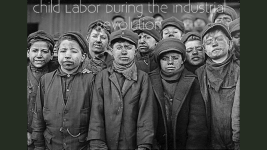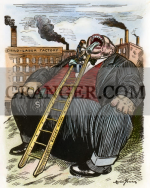- Joined
- Mar 6, 2019
- Messages
- 26,266
- Reaction score
- 23,953
- Location
- PNW
- Gender
- Male
- Political Leaning
- Other
Free market purists do not live in the real world. The invisible hand is invisible because it is a ghost.
In order for free markets to exist, it is necessary to have frictionless transactions - perfect information and no outside pressures. Neither of those conditions have ever existed, nor can they.
Moreover, there are two conditions that markets cannot address: externalities - e.g. environmental degradation, war, natural disasters; and "the tragedy of the commons"- the depletion of natural (minerals, forests, water, fisheries) and other resources (say, housing) beyond replacement.
And then there is the problem of humanity. Markets don't care about human suffering beyond making money off it. If it is not profitable, it is not addressed. (Destitute people don't spend money).
In order for free markets to exist, it is necessary to have frictionless transactions - perfect information and no outside pressures. Neither of those conditions have ever existed, nor can they.
Moreover, there are two conditions that markets cannot address: externalities - e.g. environmental degradation, war, natural disasters; and "the tragedy of the commons"- the depletion of natural (minerals, forests, water, fisheries) and other resources (say, housing) beyond replacement.
And then there is the problem of humanity. Markets don't care about human suffering beyond making money off it. If it is not profitable, it is not addressed. (Destitute people don't spend money).






